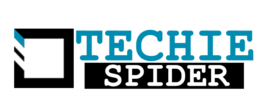
In the pursuit of sustainability and cost-effectiveness, businesses and organizations often turn to energy consultants for guidance. These professionals specialize in analysing energy usage, identifying inefficiencies, and recommending strategies to optimize energy consumption. However, choosing the right energy consultant can be a daunting task. To ensure that you make informed decisions and maximize the benefits of working with green energy consultants, it’s essential to ask the right questions. Let’s explore some key questions to ask energy consultants when evaluating their services.
Understanding the Consultant’s Expertise
What is your experience in the energy consulting field?: Start by inquiring about the consultant’s background and track record in energy consulting. Ask about their relevant experience, past projects, and areas of specialization to assess their expertise.
Can you provide references or case studies of similar projects you’ve worked on?: Requesting references or case studies allows you to gain insights into the consultant’s capabilities and the outcomes of their previous engagements. Look for success stories and testimonials from satisfied clients.
Are you familiar with our industry and energy needs?: Ensure that the consultant has experience working with organizations similar to yours and understands the specific energy challenges and requirements relevant to your industry.
Assessing Analytical Capabilities
What methods do you use to assess energy usage and identify inefficiencies?: Inquire about the consultant’s approach to energy audits, data analysis, and energy modelling. Understanding their methodologies will give you confidence in their ability to uncover opportunities for improvement.
How do you prioritize energy-saving opportunities and recommend solutions?: Ask about the consultant’s criteria for prioritizing energy-saving initiatives and their process for recommending actionable solutions. Look for evidence of data-driven decision-making and a focus on maximizing ROI.
Can you provide examples of cost-effective energy-saving measures you’ve implemented for clients?: Request specific examples of energy-saving measures or projects the consultant has implemented in the past, along with the associated cost savings and return on investment.
Clarifying Communication and Collaboration
What level of ongoing support and collaboration do you provide?: Clarify expectations regarding the consultant’s availability, communication channels, and level of involvement throughout the engagement. Ensure that they are committed to providing ongoing support and monitoring to ensure the success of energy-saving initiatives.
How do you engage with stakeholders and ensure buy-in for energy efficiency projects?: Ask about the consultant’s approach to stakeholder engagement and communication. Look for strategies to build consensus, garner support from key stakeholders, and overcome resistance to change.
What metrics do you use to measure the success of energy efficiency projects?: Discuss the consultant’s approach to performance measurement and evaluation. Seek clarity on the key performance indicators (KPIs) they use to track progress and demonstrate the impact of energy efficiency initiatives.
Addressing Financial Considerations
What is your pricing structure and fee schedule?: Understand how the consultant’s fees are structured, whether they charge a flat fee, hourly rate, or percentage of cost savings. Clarify any additional expenses or hidden costs associated with their services.
How do you quantify the potential cost savings and return on investment (ROI) for energy efficiency projects?: Ask about the consultant’s methodology for estimating cost savings and ROI to ensure that their projections are realistic and based on sound analysis.
Do you assist with securing financing or incentives for energy efficiency projects?: Inquire about the consultant’s expertise in navigating incentive programs, rebates, grants, and financing options available for energy efficiency projects. A consultant who can help maximize financial incentives can significantly enhance the affordability of energy-saving initiatives.
Conclusion: Empowering Decision-Making with Insightful Questions
Asking the right questions is crucial when selecting an energy consultant to partner with your organization. By probing into their expertise, analytical capabilities, communication approach, and financial considerations, you can gain a deeper understanding of their suitability and ensure alignment with your energy goals. By leveraging the insights gained from these questions, you can make well-informed decisions and embark on a fruitful partnership with an energy consultant to drive sustainable energy efficiency improvements.





